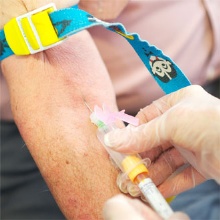
NICE advisors have approved a controversial ‘all or nothing’ diabetes QOF indicator, despite warnings from pilots that GPs found it demotivating.
The decision means the ‘bundled’ diabetes indicator – incorporating up to eight clinical processes, such as cholesterol, blood pressure and foot checks – will be included in negotiations for the 2015/16 GP contract.
This is despite results from the pilots, unveiled at the NICE QOF Advisory Committee meeting in Manchester last month, showing practices testing the new composite indicator believe it is ‘unacceptable’, with less than half (45%) supporting its introduction into the QOF.
Practices with reservations cited practical issues with care being delivered at different times and locations, a potentially unfair impact on practice achievement and the risk of demotivating GPs.
The NICE committee acknowledged the ‘all or nothing’ nature of the indicator ‘might have a demotivating effect’ on practices and may raise exception reporting rates, but decided at the meeting that they would put the indicator forward for inclusion on the NICE menu for 2015/16. It will now be part of negotiations between the GPC and NHS England for next year’s GP contract.
How the ‘bundled’ indicator may work
• GPs will have to complete eight annual checks before receiving points, including: measurement of BMI, BP, HbA1c and cholesterol; record of smoking status; foot examination; albumin: creatinine ratio; and serum creatinine measurement.
• During the pilot, GPs were only rewarded if they carried out all eight checks in each patient.
• However, the details are not yet set in stone, with NICE saying it is up to individual countries to decide whether to insist on bundling all eight care processes and how to implement them.
• One option might be to bundle three or four of the checks, for example the blood tests. Another, raised at the advisory meeting, was for each process to be incentivised separately, with practices getting a ‘bonus’ payment for getting all eight done.
• Retinopathy checks were not included in the indicator as GPs cannot perform them directly.
The composite indicator, whereby practices are rewarded only if they achieve all of a series of process indicators, was put into development at the behest of the Department of Health, after the National Diabetes Audit found many patients were not undergoing all of their recommended nine annual checks, despite practices achieving high scores on individual diabetes indicators.
Despite objections raised by the GPC and an independent review that found disparities due to differences in the way the audit and the QOF processes were measured, NICE went ahead with piloting an indicator made up of eight of the nine clinical process measures this year.
During the six-month pilot of the bundled indicator, achievement of all eight processes was reached in 27% of patients, which the QOF researchers said would translate to 53% of patients if extrapolated over a full year – an improvement on 46% in 2012/13.
Dr Colin Hunter, chair of NICE’s QOF committee, said the bundling of indicators was ‘feasible’, and was supported by most of the committee, although he personally did not think it was a good idea.
He told Pulse: ‘What we’re saying is this composite indicator in diabetes would work and deliver. There is a view it might improve quality of care because you might get more patients who get all the facets done. But there is already some evidence that exception reporting might increase.
‘We will put a caveat in about the potential downsides.’
What NICE decided should be considered for QOF 2015/16
Approved
Hypertension – Requiring patients to undergo a urinary albumin: creatinine ratio test, a test for haematuria and a 12-lead ECG in the three months before or after the date of entry to the hypertension register. These three processes may also be considered for ‘bundling’.
Mental illness – Requiring women with schizophrenia, bipolar affective disorder or other psychoses under the age of 45 years to be given information and advice about pregnancy, conception or contraception tailored to their pregnancy and contraceptive intentions.
Diabetes – Bundled indicator for diabetes (see above).
Rejected
COPD – Requiring patients with COPD recorded as having an exacerbation in the preceding 12 months to be given a course of antibiotics and corticosteroids (rescue pack) as part of a personalised future exacerbation self-management strategy.
Alcohol screening – Requiring patients with a new diagnosis of hypertension, to be screened for hazardous or harmful alcohol consumption using a validated tool and given personalised feedback on their AUDIT score as well as a patient information leaflet.
Polypharmacy – Requiring patients aged 65 years and over who are prescribed 10 or more medications to have had a face-to-face review in the preceding 12 months.
Visit Pulse Reference for details on 140 symptoms, including easily searchable symptoms and categories, offering you a free platform to check symptoms and receive potential diagnoses during consultations.

















